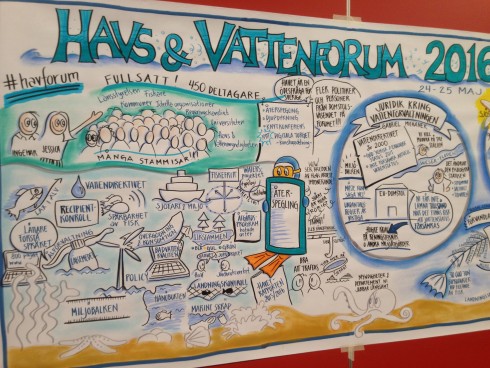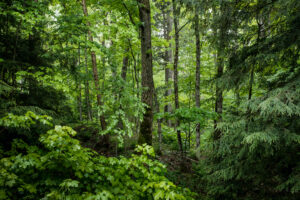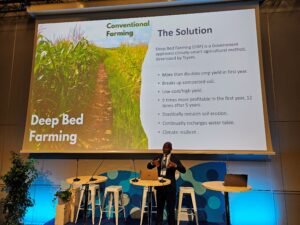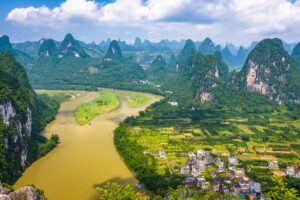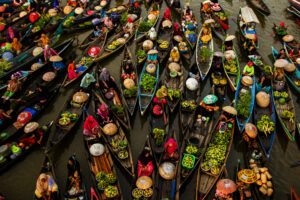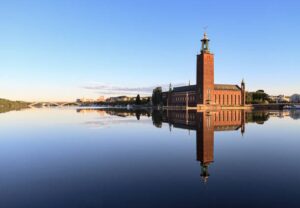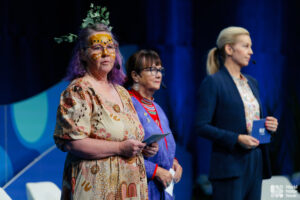Havs- and Vattenforum in Gothenburg
Gothenburg is the perfect backdrop for an Ocean and water forum. The shipping industry shaping the water front and heavy rain clouds lifting from time to time to let the sun dry up the streets.
As I scurry back and forth on the ferry to and from the conference venue, I ponder the fact that I hear too little about ocean and fresh water connections in most settings and wonder if this one is different.
Neither the questions nor the solutions are new, and the audience – well – at least I’m new to this crowd. The incumbent director general is new to the Agency, but not to us at SIWI. Was happy to hear that Dr. Jakob Granit, previous Director of SEI Stockholm, previous Director at SIWI, was mentioning the connections between economics and ecology, stressing that the links are strong and mutual benefits clear. The panel debate on the second daywas also focusing on the business sense of environmental clean-up, protection, and policies. The panel was only talking about the Swedish context, as would be expected, but the problem is growing. They also addressed the new global goal on sustainable production and consumption, but without making the explicit connection. Capacity building and upstream prevention was the main focus for the panel. They also expect that future consumers, i.e. youth, to be more aware and have higher demands as consumers and as a work force. Future generations are supposed to be more critical and value driven. I wonder if we can hope for a generational turnover, or if we should work much more actively with school curriculum, youtube channels, and vloggers.
The digitalisation trend seems to focus on data, data and data. All in very flashy interfaces, promoting the interconnectedness between databased, combining information, all open access. The transparency is wonderful and I just love it. One specific tool that struck me as excellent was the VISS database, (Vatteninformationssystem Sverige) which among other things facilitate reporting to the EU by compiling all data from local rivulets. Quality is measured on an impressive resolution and it is quite mind blowing. However, it does not help when the Norwegians calls a shared water source something else! Streamlining the names of all shared waters is cumbersome and highly collaborative effort, requiring high amount of trust between the parties.
Minister for Rural Affairs, Sven-Eric Bucht, highlighted waters role in relation to Sweden’s most important bio-economic industries when addressing the 450 people in the audience. The coming food strategy that will be presented in June will contain many recommendations on how expansive food production can be sustainable in Sweden. The use of agricultural land should be expanded and reducing the reliance on food import. “We cannot continue this way” was the forceful message from the minister. Innovation for forestry production and aquaculture should be areas for expansion. We have a good and sound industry as a basis that can be developed further. I would like to add that we also have the knowledge, both within the industry and policy, to contribute to the expansion of these sources of fuel and food in other parts of the world. If that is part of the upcoming strategy remains to be seen.
Illustration by Louise Wester.
